Talking across on unfamiliar ground
by JB2021 ESOK Curatorial Team
Groupings, or labels, that package and divide our cultures into neat boxes, and binaries, have never accommodated our nuanced and complicated personal and political positions. Be it based on race, ethnicity, nation, religion, gender, or any kind of division, really. We cannot speak simply of the east against the west or even strict functions of self and others. Given these complexities, how do we talk to each other, particularly across the periphery, when we decentre the west as the central pivot point all cultures pass through? How do we understand each other from a mutual unfamiliarity when we remove the conduit of the centre? How do we hold a space for duality and contradiction in a time which demands affirmative cultural positions?
This panel will discuss and draw upon different cultural positions in the arts and international solidarity movements as a starting point to think through the complications of positioning, particularly in relation to displacements, diasporas, and exiles. Ranging from the artist Emiria Sunassa, Pacita Abad, to the Surrealist support of anticolonialism to the diverging political posturing of the Bandung 1955 Asia Africa Conference, this panel is an open thought experiment.
Speakers
Vera Mey is a PhD candidate in History of Art & Archaeology at SOAS, University of London. Prior to this, she spent several years working as a contemporary art curator independently and in institutions including ST PAUL St Gallery, AUT University, New Zealand and the NTU Centre for Contemporary Art, a contemporary art research centre in Singapore led by Prof. Ute Meta Bauer. She is co-founder of the peer reviewed journal SOUTHEAST OF NOW: Directions in Contemporary and Modern Art in Asia published by NUS Press (Singapore).
Cassandra Barnett (Raukawa, Ngāti Huri, Ngāti Pākehā) lives in Ngaio, Te Whanganui-a-Tara with her 8-year-old son Izuba. She writes fiction and poetry about culture, whenua, power, voice and te ao Māori. Her work is published in Landfall, Turbine Kapohau, Brief, OraNui, Black Marks on the White Page, Huia Short Stories 13 and Te Rito o te Harakeke: A Collection of Writing for Ihumātao. She has art essays in Te Manu Huna a Tāne (2020), Pantograph Punch (2020), Ate (2019), Counterfutures (2018), South as a State of Mind (Documenta 14, 2017), Animism, Animacies and Material Vitality in Art & Performance (2017) and more. When not working, writing or parenting she can be found planting, weeding and obsessively checking in with the moon!
Pitra Hutomo promotes inclusive technology. She is currently studying to be a psychotherapist. At the moment, she volunteers for the Online Gender-Based Violence Task Force. She also works with Peretas, intersectional organizations for women working in the arts and culture. Her footing in visual arts began with working for the Indonesian Visual Art Archive (2006 – 2015) proceeded with her ongoing support for Hyphen —
Grace Samboh is a member of JB2021 ESOK Curatorial Team; one of the curators for “Collecting Entanglements and Embodied Histories”, a joint collection-based exhibitions project by Galeri Nasional Indonesia, MAIIAM Contemporary Art Museum, Singapore Art Museum, Nationalgalerie – Staatliche Museen zu Berlin, and Goethe-Institut (2021-2022); while struggling to pursue a doctorate in the Arts and Society Studies, at the Sanata Dharma University, Yogyakarta.
Credits
This monthly event is supported by Plus Jakarta, Enjoy Jakarta, the Ministry of Education and Culture, SAM Fund For Art And Ecology, and jointly held with Jakarta Arts Council.
Image used in our publications for this event is “Open Studio A28.” Photo by: Sander van Wettum. Image courtesy: Julian Abraham “Togar”.
JB2021 ESOK Monthly Event is a platform run by the curatorial team as a way to expand and share ideas, thoughts, and the process of working towards making JB2021 ESOK happen. Stay up to date on our upcoming event through our social media channels on Instagram and Facebook.
